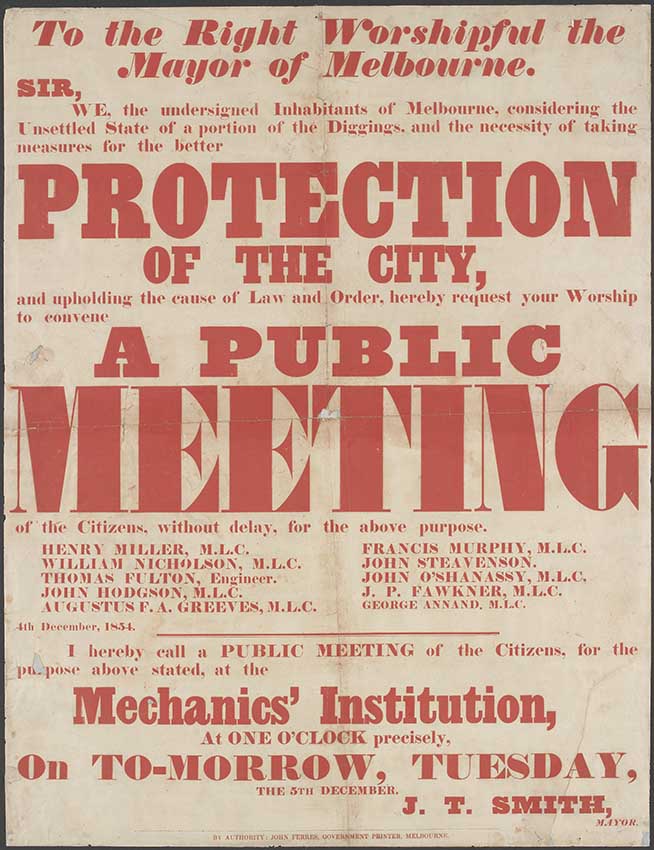Difference between revisions of "St Paul's Cathedral, Melbourne"
(→Also See) |
(→Also See) |
||
| Line 31: | Line 31: | ||
[[William Miller]] | [[William Miller]] | ||
| + | |||
| + | [[Francis Murphy]] | ||
[[William Nicholson]] | [[William Nicholson]] | ||
| + | |||
| + | [[John O'Shannessy]] | ||
[[John T. Smith]] | [[John T. Smith]] | ||
Revision as of 20:49, 18 August 2023

Background
St Paul’s Anglican Cathedral is located on the corner of Flinders and Swanton Streets, Melbourne. On 05 December a loyalist meeting was organiased by the Mayor to show support to the Governor and the actions of his officials. The Crowd of over 4,000 displayed hostility to the attack on the digers and Mayor John T. Smith quickly closed the meeting. On the following state the State Treason Trials started.
Meetings
In December 1854 there was shock and outrage among the general community in Melbourne on learning of the government’s actions and the lives lost at Eureka. The reaction in Melbourne turned the diggers’ defeat into a victory.
An official meeting on the 5th December in support of Lieutenant Governor Charles Hotham was taken over and resolutions were passed condemning the Government and calling for the immediate dismissal of Colonial Secretary Foster. On the same day the Legislative Council met and passed a motion, unanimously, approving the conduct of the troops. This great public meeting was said to be the biggest in the Colony at that time.
On the 6th December a second meeting meeting of 6,000 gathered at St Paul’s Church and protested the actions of the government and the Ballarat authorities. The attack by the troops was described as illegal and murderous. One speaker described the day (6th December) as a ‘proud day for Victoria …the beginning of the history of the colony’. This meeting marked the emergence, at last, of the popular democratic movement. Hotham had placed 300 police, 100 gaol warders, 100 volunteers and all available marines in neighbouring streets and government buildings in case of riots. The meeting concluded with three cheers for the diggers, three cheers for Dr Owens (a speaker and editor), three cheers for Sir Charles Hotham, and three groans for the troopers.
Meanwhile the diggers were seething with resentment.
At the Treason Trials on 23 February, the jury of Melbourne citizens, acquitted all the diggers and they became popular heroes. Before long the licence fee was abolished and diggers were given the vote.
Further Reading
Ian Macfarlane, Eureka From the Official Records, Public Record Office, 1995